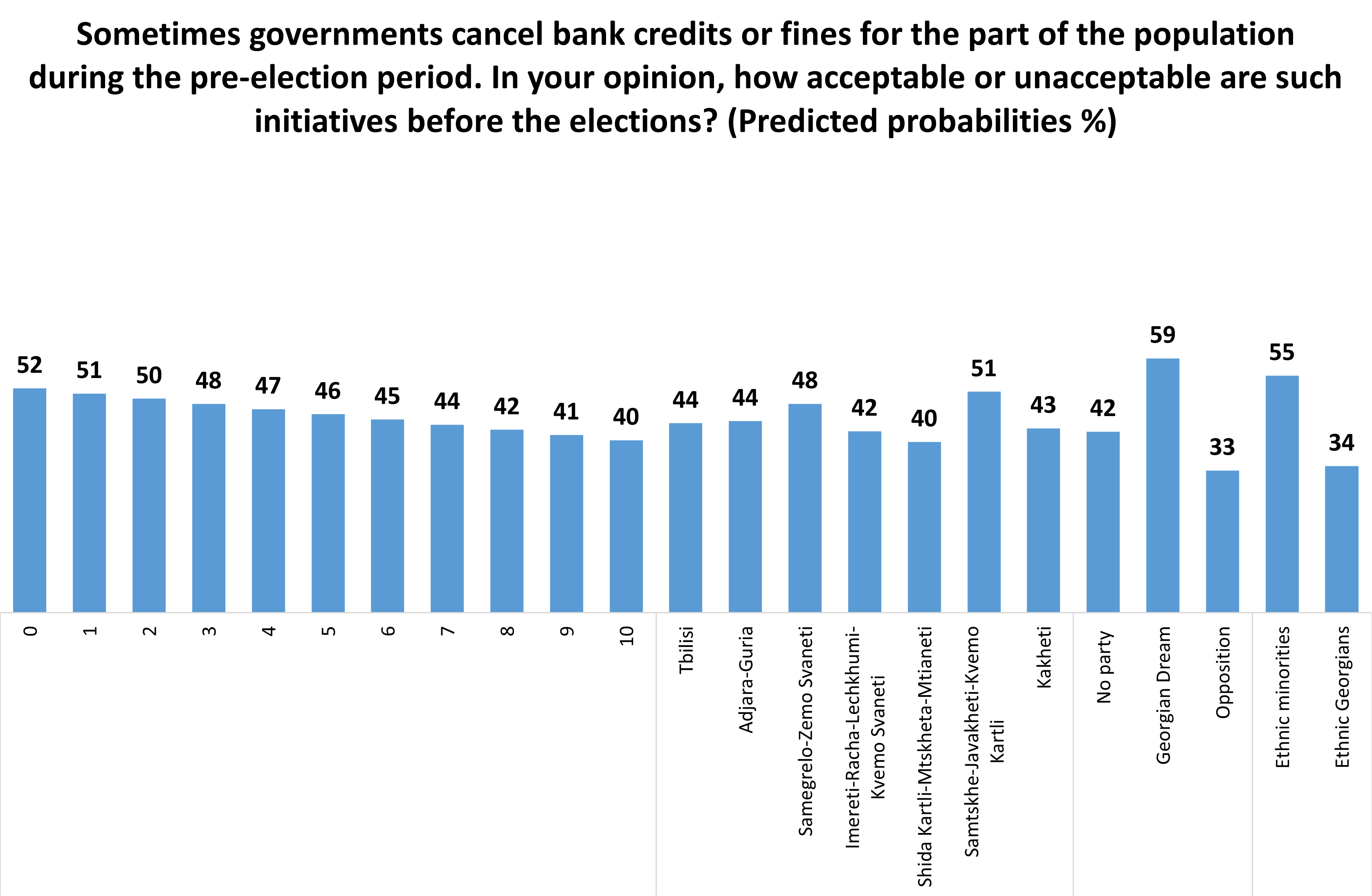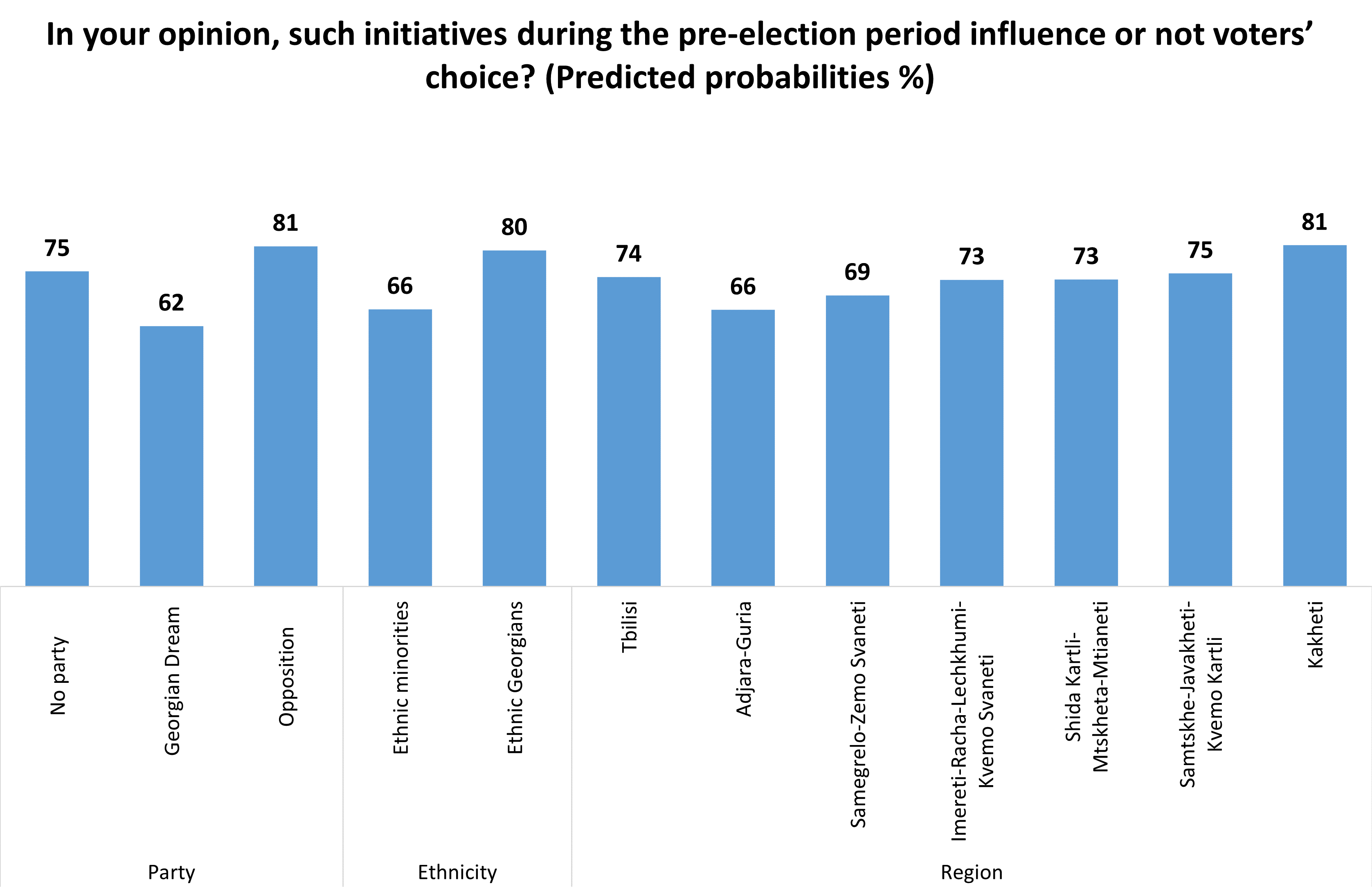In the run up to several recent elections, the government, or those close to it, have announced amnesties on people’s debts or fines. But what do people think of the practice?
In the lead up to the second round of the 2018 presidential elections, a charitable foundation set up by the founder of Georgian Dream announced a debt amnesty for people with loans of ₾2,000 or less. Around one-sixth of the population benefited from the programme. Similarly, in 2021, the government announced they would annul COVID-19 fines in the lead up to municipal elections.
Election monitors have criticised this pattern of annulling fines and loans in the lead-up to elections.
In September 2021, CRRC Georgia conducted a survey for ISFED on attitudes towards elections. The data indicates that a majority think this behaviour influences voters and is unacceptable during the pre-electoral period.
Overall, 59% of the public reported that debt and fine cancellation was unacceptable during the pre-electoral period, while 34% considered this acceptable. A small share did not know or refused to answer (7%).
People’s attitudes vary according to several factors. Modelling suggests that wealthier people, people who do not support Georgian Dream, and ethnic Georgians are less likely to accept loan cancellation in the pre-electoral period than less wealthy people, Georgian Dream supporters, and ethnic minorities.
Compared to other regions, people in Samtskhe-Javakheti and Kvemo Kartli are more likely to accept such activities.

The data shows that 69% of the people think that cancelling bank loans or fines during the pre-electoral period influences who people vote for. Only 19% of people did not think so, and 12% were uncertain.
When broken down by social and demographic characteristics, the data shows that ethnic minorities, Georgian Dream supporters, and people living in Adjara and Guria are less likely to say that such initiatives influence who people vote for.
Opposition supporters, ethnic Georgians, and people from Kakheti are more likely to believe it influences voters.

Overall, most people do not think that annulling fines or loans before elections is acceptable, and they do believe that it influences voters.
Those who support the governing party and ethnic minority are less likely to think loan cancellation influences voters, and they are more likely to accept the practice.
Note: The above analysis is based on a logistic regression model. The model includes gender (male, female), age groups (18-34, 35-54, 55+), region (Tbilisi, Adjara-Guria, Samegrelo-Zemo Svaneti, Imereti-Racha-Lechkhumi-Kvemo Svaneti, Shida Kartli- Mtskheta-Mtianeti, Samtskhe-Javakheti-Kvemo Kartli, Kakheti), employment status (employed or not), education (secondary or lower, technical, tertiary), ethnicity (Georgian, ethnic minority), wealth (ownership of 10 different items, a proxy variable), and closest party to the respondent’s views (Georgian Dream, opposition, Don’t know/Refuse to answer/No party).
The data used in this article is available here. The replication code for the above analysis is available here.
The views presented in this article do not represent the views of CRRC Georgia, the National Endowment for Democracy, or any related entity.










